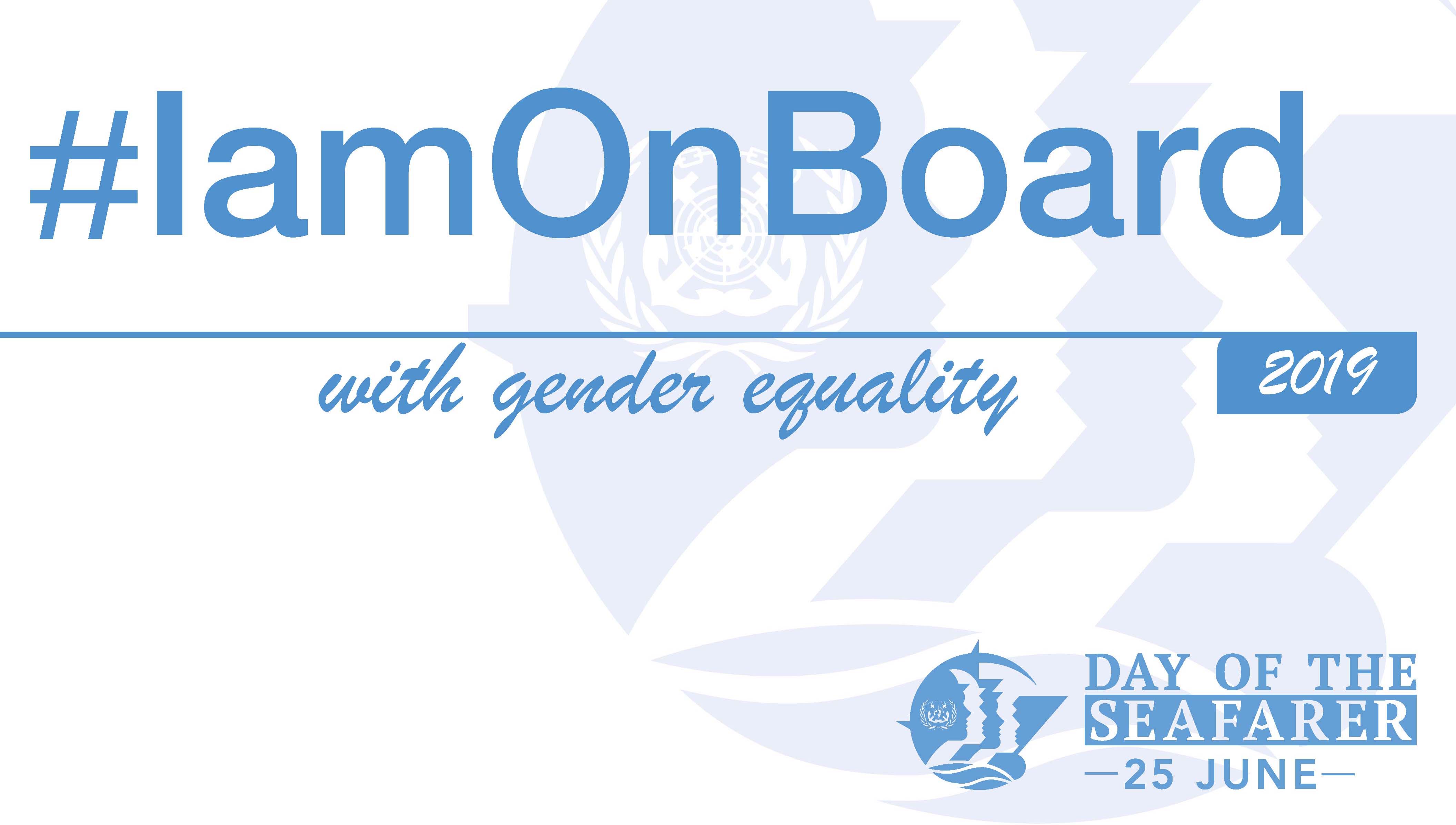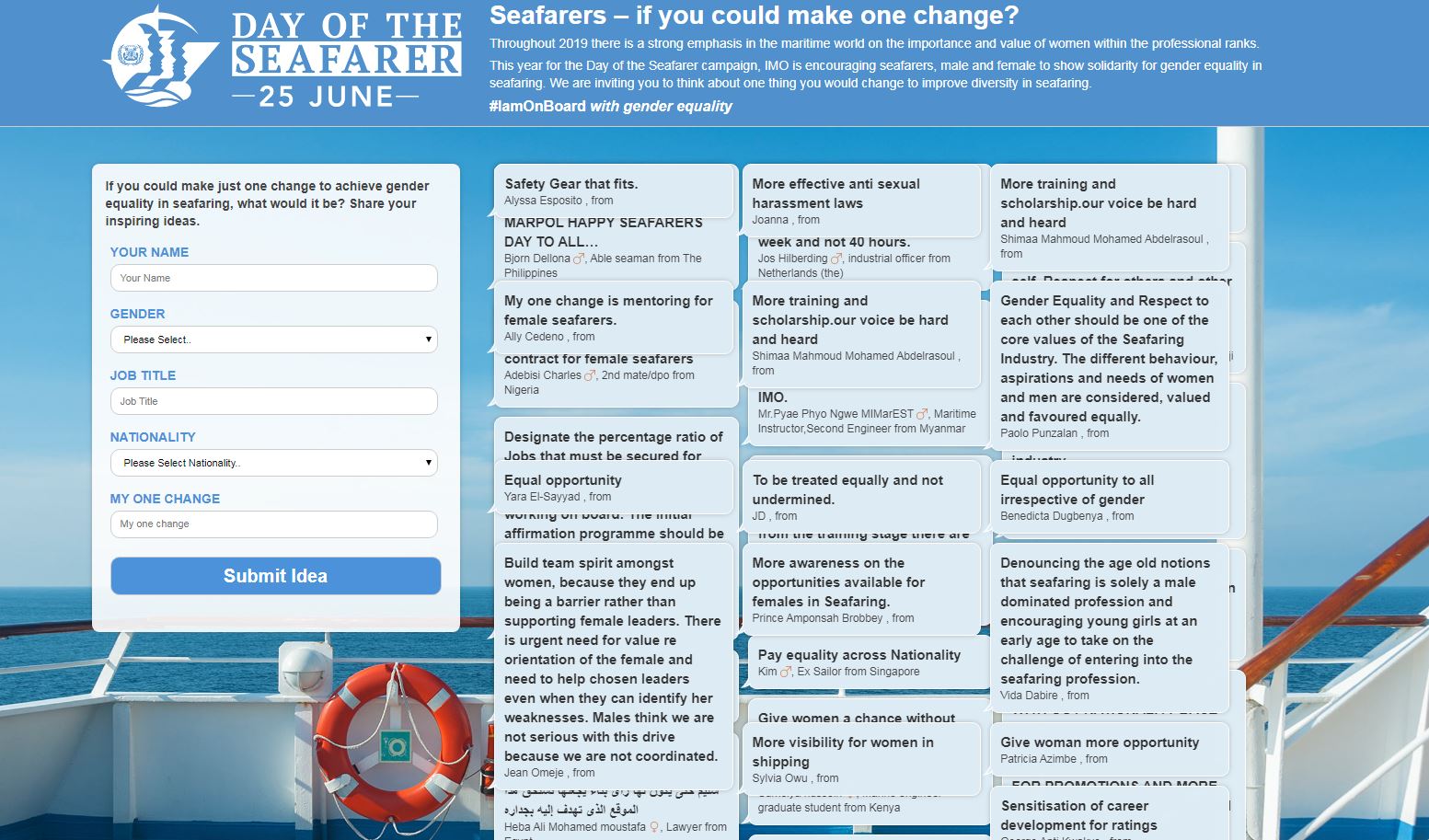
Difficulties in balancing work and family life, mentoring, equal pay, period poverty… seafarers taking advantage of the newly launched Day of the Seafarer virtual wall are having no problems listing what one change they would make to achieve gender equality.
The #IAmOnBoard with gender equality wall hosted by the International Maritime Organization (IMO) highlights the strong emphasis in the maritime world on the importance and value of women within the professional ranks.
For the Day of the Seafarer campaign, IMO is encouraging seafarers, male and female to show solidarity for gender equality in seafaring and has invited comments for change to improve diversity in seafaring.
Posts from by male and female officer ranks all over the world have drawn attention to the need for awareness on how to balance work and family, providing more flexible contracts, increased equal opportunities for training, respect and the elimination of violence towards women and racism, and simply more visibility of seafaring as a career in education.
One post has also urged payment for the real hours worked by Svitzer tug crew.

Many urge improved employment conditions across the board, greater equal rewards and responsibilities for all rather than highlighting one gender.
One of the first posts urged companies to provide as standard sanitary products onboard – a topic raised at 2019's TUC women's conference, attended by Nautilus. The Womens' conference passed a motion on period poverty, which highlighted the issue of those workers globally impacted by poverty being unable to afford sanitary protection.
A health survey of nearly 600 female seafarers conducted by IMHA, ISWAN, ITF & SHS in 2015 also highlighted a continued issue with access to sanitary bins on board. The issue has been documented as a serious concern for women seafarers over ten years ago by the International Labour Organization, and yet 40% of respondents in that survey said they still lacked access to a sanitary bin on board. That figure is even higher for women working on tankers where only 27% of respondents have access, or for those working on cargo ships where only 38% do.
Ill-fitting PPE clothing, and the need for more women mentoring at senior levels in the maritime industry were also highlighted.
Tags
